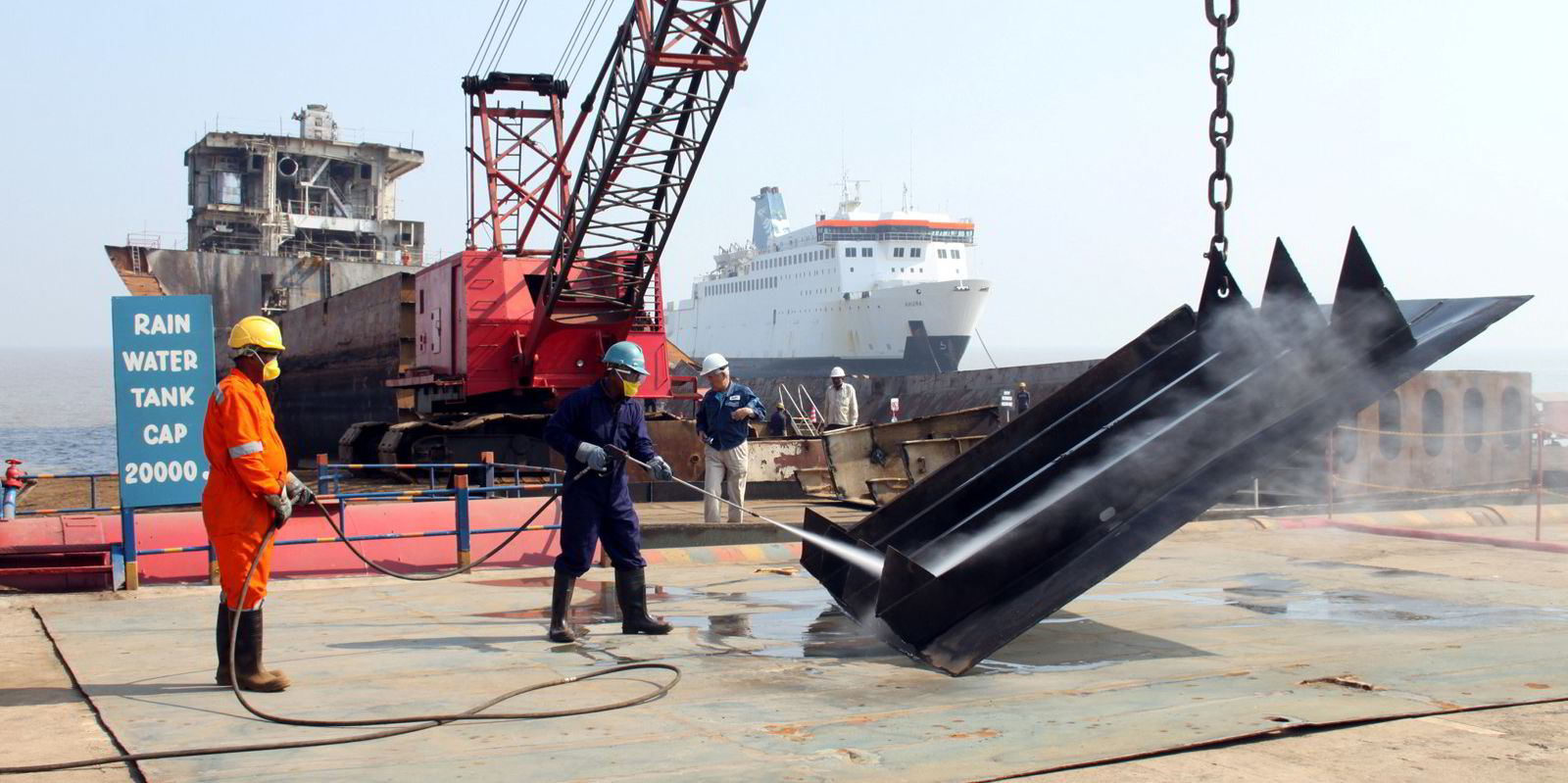India’s state of Andhra Pradesh wants to set up India’s most advanced ship-recycling facilities — yards that will not only meet the standards set out by the Hong Kong International Convention for the Safe and Environmentally Sound Recycling of Ships but will also be approved by the European Union from the start.
Driving this project is Ravindranath Reddy, deputy chief executive of the Andhra Pradesh Maritime Board, who said the biggest difference between what he envisions for the south-east state and Alang — India’s current ship-recycling centre — is that no beaching will be involved.
Reddy, who is in charge of the maritime board’s business development and economic activities, told TradeWinds that the state is constructing four new deepwater ports and has identified green ship recycling as potentially being a major contributor to coastal economic activity.
“I’ve been working on this project about a year now, trying to find out the ups and downs of the industry, what are the risks and the rewards,” he said.
Reddy believes that new greenfield facilities are the way forward for the Indian ship-recycling industry as regulations and requirements for green scrapping from shipowners becomes increasingly stringent.
“Let me put this into perspective,” he said. “Established recycling yards in this region evolved organically. They started some time back, leveraging on the geographical conditions, the gradient, the high range of tides. That’s the reason why they came up in those places.
Phasing out old practices
“However, the recycling paradigm has changed 180 degrees today, and the kinds of practices being done in these places are being slowly phased out.”
He said the change opens an opportunity, since old practices are hard to evolve into the good graces of the Hong Kong Convention and stricter EU standards.
“Now that I’m beginning to start and establish a greenfield ship-recycling yard, I have the advantage because I can design this to cater not just to current needs now, but also for the future, when the size of the ships going for recycling will increase significantly and are going to need a much larger facility,” Reddy said.
“And if it is going to conform with the EU guidelines, it has to have a 400-metre dry dock, or equivalent facility.”

He said the board is in discussions with technical experts as it explores various methods that would meet EU rules.
But how will the green yard in Andhra Pradesh compete with established beaching yards that do not have the capital investment costs, and have a cheaper method of breaking up a ship?
Not only does Reddy expect the beaching method to be phased out, based on discussions he has had with shipowners, he also suggests an increasing number will opt for green recycling at a non-beaching facility.
“They are incentivising green recycling by selling the tonnage at a discount,” he said. “I’m hoping that this will continue in the future.”
Moreover, these recycling yards will not be standalone facilities. They will be part of a larger steel manufacturing ecosystem, which Reddy believes will help drive down the cost of green recycling and make the yards more competitive on price.
“Cost-cutting for this kind of yard can be achieved by having the consumption of the steel generated out of this in a nearby place to cut the cost of logistics or transport,” he said.
“We are looking at developing an integrated steel cluster with downstream industries very close to recycling yards that would accrue a lot of synergies and support our economic viability.”
Reddy believes that building the new steel cluster around the ship-recycling facilities will also resolve one on the EU concerns about the lack of adequate downstream waste-handling facilities in the Indian subcontinent’s ship-breaking sector.
“That is where integrated steel cluster is going to help, because even the downstream steel industries are going to be greenfield industries,” Reddy said. “The precondition for anybody to set up something would be that they conform to the guidelines.
“Any new steel industries which are going to be set up will have to get environmental clearances from our national agencies. Indian guidelines are quite strict and generally on par with the world guidelines as of now. Therefore, we are confident that they will meet the EU requirements.”





